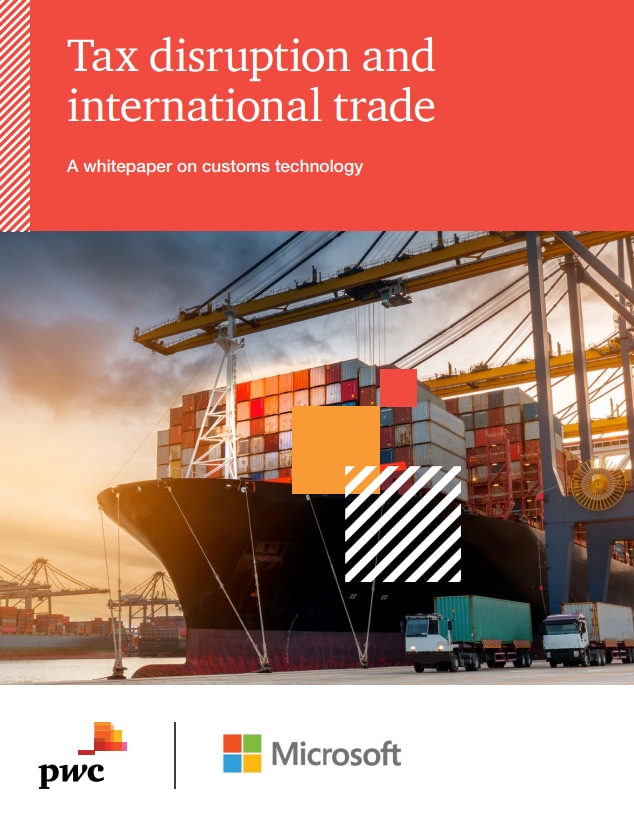The world of tax administration is changing fundamentally. As tax authorities digitally transform, traditional processes are being redefined by disruptive technologies. Direct connections to business information systems, real-time auditing using large language models and automated cross-border data reconciliation are not the future. They are the present reality.
Discover our collaborative whitepaper with Microsoft
We delve into the heart of this digital transformation, focusing specifically on customs – an area of tax administration that is in the middle of a paradigm shift. Traditionally, customs authorities relied on risk assessments to selectively inspect products at the border. Now, the information systems of the businesses that produce and/or trade these products are increasingly inspected before and/or after importation. This shift from a transaction-based approach to a systems-based approach is accompanied by the accelerating digitalisation of customs authorities.


Accelerating the digitalisation of customs
We explore three key factors that drive this acceleration: the growing volume of international trade, the ‘parcelisation’ and digitalisation of international trade, and the increasing complexity and interconnectivity of international trade regulation. For businesses, the digitalisation of customs processes results in increased transparency, improved efficiency and new opportunities to generate value for stakeholders.

Navigating the challenges and opportunities
To thrive in this new world of digital customs, businesses must adapt. Upgrading the digital skills of customs and supply chain functions, integrating these functions with other business processes and implementing digital technologies are imperative steps towards benefiting from the digitalisation of customs.
We guide you through the driving forces behind the accelerating digitalisation of customs authorities. Global trends as well as nine specific country examples help to illustrate both the extension and the speed at which customs transform their processes. Having identified the challenges and opportunities that may arise for businesses in this new world, we lay out the strategies that will guide you through this journey.

Partnering for success
Join us as we showcase how PwC and Microsoft collaborate to support businesses in navigating the digital realm of customs and supply chain processes. Together, we’re empowering businesses to thrive in this new digital world of customs.
Get exclusive insights on customs technology and download the whitepaper
https://pages.pwc.ch/core-asset-page?asset_id=701Vl000005QZtkIAG&embed=true&lang=en
Contact us
Dr Sebastian Klotz
Christoph Schärer
Tax and Legal Innovation, Transformation & Disruption Leader, PwC Switzerland
+41 58 792 42 82
Simeon Probst
Stuart Jones





